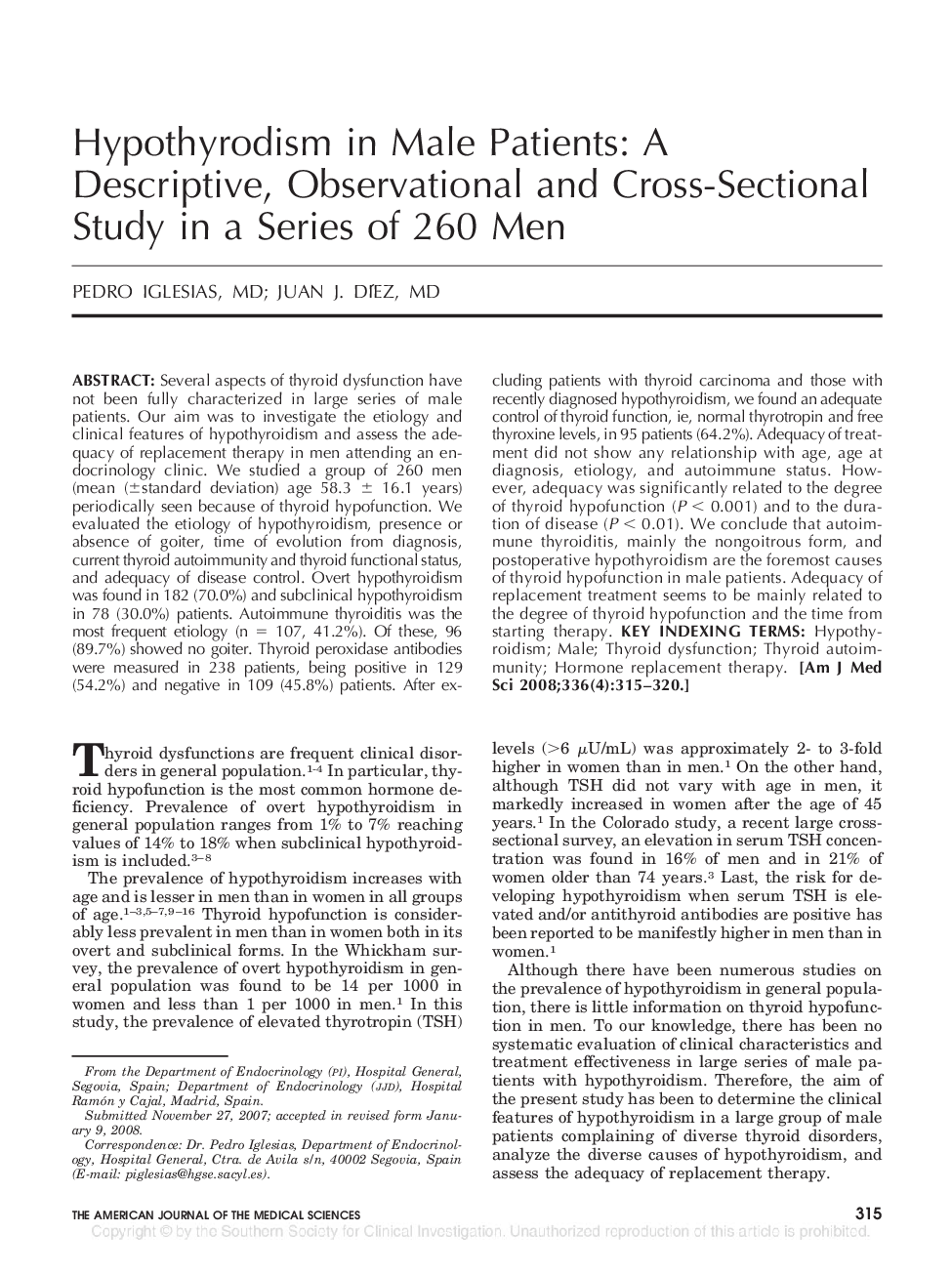| Article ID | Journal | Published Year | Pages | File Type |
|---|---|---|---|---|
| 2864590 | The American Journal of the Medical Sciences | 2008 | 6 Pages |
Abstract
Several aspects of thyroid dysfunction have not been fully characterized in large series of male patients. Our aim was to investigate the etiology and clinical features of hypothyroidism and assess the adequacy of replacement therapy in men attending an endocrinology clinic. We studied a group of 260 men (mean (±standard deviation) age 58.3 ± 16.1 years) periodically seen because of thyroid hypofunction. We evaluated the etiology of hypothyroidism, presence or absence of goiter, time of evolution from diagnosis, current thyroid autoimmunity and thyroid functional status, and adequacy of disease control. Overt hypothyroidism was found in 182 (70.0%) and subclinical hypothyroidism in 78 (30.0%) patients. Autoimmune thyroiditis was the most frequent etiology (n = 107, 41.2%). Of these, 96 (89.7%) showed no goiter. Thyroid peroxidase antibodies were measured in 238 patients, being positive in 129 (54.2%) and negative in 109 (45.8%) patients. After excluding patients with thyroid carcinoma and those with recently diagnosed hypothyroidism, we found an adequate control of thyroid function, ie, normal thyrotropin and free thyroxine levels, in 95 patients (64.2%). Adequacy of treatment did not show any relationship with age, age at diagnosis, etiology, and autoimmune status. However, adequacy was significantly related to the degree of thyroid hypofunction (P < 0.001) and to the duration of disease (P < 0.01). We conclude that autoimmune thyroiditis, mainly the nongoitrous form, and postoperative hypothyroidism are the foremost causes of thyroid hypofunction in male patients. Adequacy of replacement treatment seems to be mainly related to the degree of thyroid hypofunction and the time from starting therapy.
Related Topics
Health Sciences
Medicine and Dentistry
Cardiology and Cardiovascular Medicine
Authors
Pedro MD, Juan J. MD,
